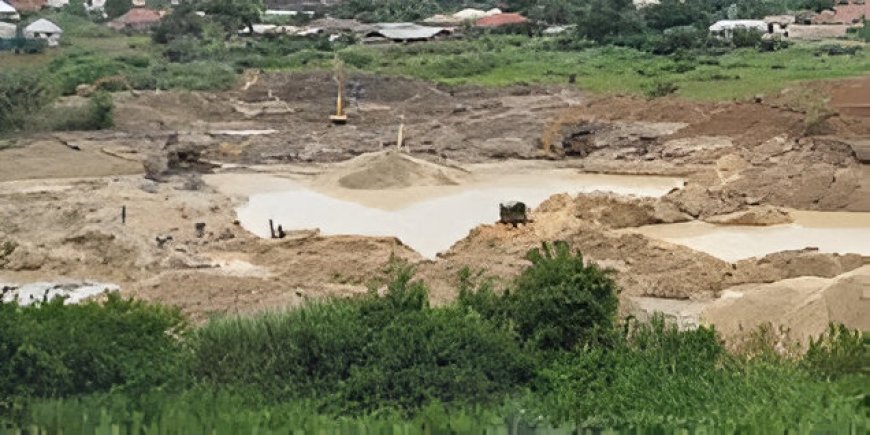Galamsey Activities Have Destroyed Aboi-Nkwanta Roads

Some stretches of the Aboi Nkwanta-Samreboi Road in the Wassa Amenfi West Municipality of Ghana's Western Region have been destroyed beyond words, ostensibly due to illegal mining as commonly known in local parlance, galamsey. The tail end of such activities and a rainstorm recorded some weeks ago have resulted in deep gullies and devastation that block much of the road and make it nearly impassable.
The illegal miners at Aboi Nkwanta operate very close to the stream that borders one side of the road and has left several pits exposed. This has increased the likelihood of the road caving in any time there is heavy rainfall. The destruction has prevented vehicles plying between Asankragwa, Aboi Nkwanta, Samreboi, and its environs from using the road and instead compelled them to use very long detour routes, such as the Sureso or Wassa Dunkwa Road. Currently, only motorbikes can navigate certain areas through makeshift wooden planks that bridge them.
In an interview with the Ghana News Agency, Nana Gyan Manso, Assembly Member for the Akromantu Electoral Area, explained that "several houses have been submerged while some residents have been displaced." He called on the National Disaster Management Organisation, NADMO, to intervene, saying that he would work with local leaders to impress on the government to speed up the repairs of roads.
This call to action by Nana Manso simply underscores the urgent need for government and community intervention to prevent further destruction. Despite national efforts to curb galamsey, miners continue to operate near critical infrastructure in threatening ways to life, property, and the environment.
For this reason, drivers and residents are crying out for rapid, concrete actions that can help reverse these activities before things get out of hand. Galamsey has now become a major threat to roads and communities alike, threatening to destroy Ghana's rich ecosystems and precious water bodies. Strong and immediate enforcement is needed in anti-galamsey policies to protect these regions and the people.







